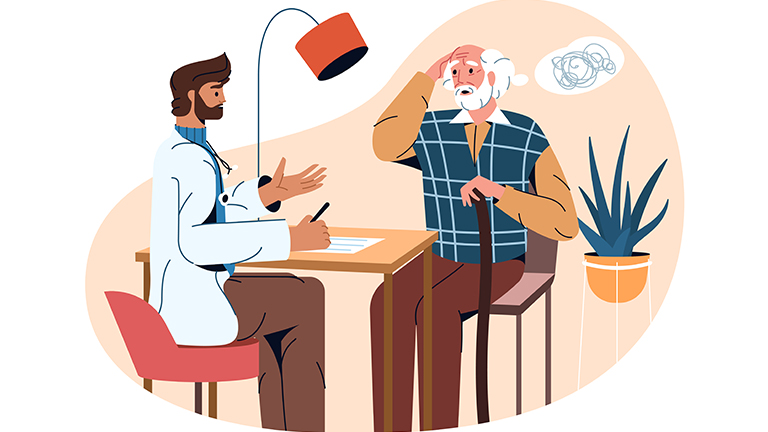Alzheimer dementia slowly chips away at memory, thinking, and behavior, making everyday life harder over time. It usually shows up in older adults, and honestly, it’s the most common type of dementia out there. Spotting it early helps, and things like healthy habits, medication, and strong support for caregivers can make a real difference. Researchers keep digging for better treatments, ways to prevent it, and ways to help people and their families live better with the disease.
Understanding Alzheimer Dementia: A Complete Overview
Alzheimer’s dementia slowly steals memories and changes the way people think and act. It’s not just tough on the person with the disease—it hits families hard, too. All over the world, especially in places like the US, UK, and Canada, more and more older adults are dealing with it. Right now, it ranks as one of the top reasons older people lose their independence. Knowing what causes it, how it shows up, and what can be done to treat or even prevent it makes a real difference. Early action matters. It can help people hang on to their quality of life a little longer.
Early Signs and Symptoms of Alzheimer Dementia
Spotting Alzheimer’s early matters — it gives people a better shot at managing the disease. The first signs aren’t always obvious, but you’ll often notice things like forgetfulness, struggling with everyday tasks, trouble solving problems, or getting mixed up about time or where they are. Sometimes, you’ll see shifts in mood or personality, too. Mild cognitive impairment usually comes before full dementia, so catching it early really helps slow things down.
Alzheimer Stages
This disease moves through three stages: early, middle, and late. In the beginning, someone might just forget things now and then. As things get worse, memory problems grow and everyday tasks become harder. By the late stage, people often rely on others for almost everything. Knowing what to expect at each stage really helps families figure out how to care for their loved one and what kind of treatment to look for.
Mild Cognitive Impairment vs Alzheimer Dementia
Mild cognitive impairment, or MCI, shows up as small memory slips, but people can still get through their day without much trouble. Alzheimer’s dementia is a different story—memory loss gets worse, judgment starts to falter, and conversations become harder. Spotting and addressing these issues early, when it’s still just MCI, helps slow things down.
Causes and Risk Factors of Alzheimer Dementia
Scientists are still digging into what exactly causes Alzheimer’s, but it’s clear that your genes, your environment, and how you live all have a say.
Take genetics, for example. If you’ve got the APOE-e4 gene, your chances go up, though it’s not a guarantee you’ll get the disease. Having family members with Alzheimer’s? That’s a big warning sign too.
But genes aren’t the whole story. Getting older, heart problems, diabetes, smoking, or even a serious knock to the head—they all add to the risk. The good news is you can tilt the odds. Looking after your heart and your brain, eating well, staying active—it really does help keep Alzheimer’s at bay.
Diagnosis and Assessment Methods
Diagnosing Alzheimer’s starts with a good look at your medical history, how you think, and how you handle day-to-day stuff. Doctors run tests like the MMSE or MoCA to see how your memory and problem-solving hold up. They’ll also check brain scans—like MRI or PET—to spot any changes, and they use blood tests to make sure something else isn’t causing the symptoms. Catching Alzheimer’s early means doctors can start treatment sooner and help you plan for what’s ahead.
Treatment Options: Medications and Therapies
There’s no cure, but treatment aims to slow things down and make symptoms easier to handle.
Alzheimer Medication Options
Doctors usually turn to medications like donepezil, rivastigmine, or memantine. These can boost thinking skills or help keep symptoms steady, especially in the early and middle stages.
Cognitive Training and Mental Exercises
Therapies go beyond medicine. Memory games, puzzles, and other brain exercises help keep the mind sharp and hold off decline. Speech and occupational therapy also play a big part, making everyday tasks a little easier.
Lifestyle and Home Remedies to Manage Dementia
Making healthy choices every day goes a long way for your brain and helps you feel better overall.
How Diet and Exercise Help Your Brain
Eating plenty of veggies, fruits, lean proteins, and foods packed with omega-3s keeps your mind sharper. Moving your body—whether it’s a walk, dancing, or whatever gets you going—increases blood flow to your brain and cuts down your risk for dementia.
Coping Strategies for Families and Caregivers
If you’re looking for help, community resources like support groups or counseling can make a huge difference. Sometimes just talking to people who get what you’re going through helps more than you’d expect. Respite care is another lifeline—having someone step in so you can take a break matters. And don’t skip out on caregiver training. Learning more makes the job a bit less overwhelming.
Tech can step in, too. There are apps that remind you about medications, keep an eye on safety, or offer brain games for your loved one. These tools make daily care a little smoother, so you’re not doing it all alone.
Latest Research and Advances in Alzheimer Dementia
Ongoing studies focus on understanding disease mechanisms, genetic factors, and innovative treatments. Clinical trials explore potential drugs, vaccines, and regenerative therapies.
Authoritative source: Alzheimer’s Association Research
Global Statistics and Impact of Alzheimer Dementia
Worldwide, over 55 million people live with dementia, and Alzheimer disease accounts for 60–70% of cases. Prevalence is increasing due to aging populations, highlighting the need for awareness, research, and healthcare resources.
Authoritative source: World Health Organization Dementia Facts
Preventive Measures and Brain Health Tips
Although Alzheimer dementia cannot be entirely prevented, risk reduction is possible.
Maintain physical activity, a balanced diet, mental stimulation, social engagement, and control of cardiovascular risk factors to support brain health.
Expert Opinion Alzheimer Dementia
If you’re over 60, especially if there’s a family history, neurologists say it’s smart to get screened early. The best results come when doctors mix different approaches—medication, changes to daily habits, and real support for caregivers. Research keeps showing that tailoring care to each person helps slow the disease and lets people enjoy a better quality of life.
Conclusion
Alzheimer Dementia isn’t simple. It gets worse over time and demands more than just medicine. Spotting it early helps, but you also need a solid treatment plan, changes in daily habits, and real support for caregivers. People everywhere are working on this—research keeps pushing forward, and more folks are paying attention. That brings hope. We’re seeing better care and a shot at a higher quality of life for those affected.


